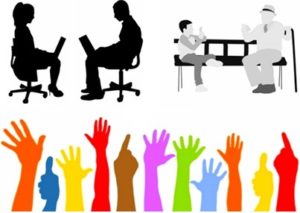At every stage of personal growth and development, mentors play a key role in providing advice and support to propel their mentees forward. The act of mentorship is a core element of social interactions and societal advancement. A line like “it takes a village to raise a child” is basically talking about mentorship. Same for the commonly used line in academic and medical circles – “See one. Do one. Teach one.” Graduate and postgraduate students and fellows are required to have assigned mentors to guide them through their final stages of education, and early stages of a professional career.
The level of success a person achieves can be accurately traced to the level of mentorship afforded to them. Mentorship, more so than just academic education, provides a broad spectrum of opportunities for learning and growth. Great mentors are able to provide advancement in what is classically referred to as “soft skills”. These are skills like: communication, leadership, time management, “tricks of the trade”, and other avenues of growth normally left out of school curriculums. This makes finding a highly qualified and experienced mentor an extremely valuable endeavor. Of course these skills are not limited to the medical and academic fields; mentorship is valuable in all aspects of personal and professional growth.
Here is where I introduce the main message I’d like to pass along in this piece. We (correctly) seek and value mentorship from experienced, highly qualified, and revered individuals, to assist us in advancing our knowledge and skills within our chosen fields. However by focusing on finding one type of mentor, we may be setting ourselves up for lost opportunities, learning and advancements of equally beneficial value, from individuals that don’t fit the classic idea of a mentor. By this I mean, when was the last time you looked for a mentor that was junior to you?
We all are kind of aware of how this type of mentorship can be, like how I’m happy to continuously coach my dad on how to advance his usage of smart phone technology, and how my younger relative is mentoring me on how to be a better skater and hockey player! This same kind of mentorship dynamic can also translate in a professional/academic setting. In our present fast-paced advancing world, many novel ideas and tools develop, and typically the earliest adopters are not individuals that have established some previously learned and used idea/tool (i.e. the ones with the lived-in world “experience”). Most of the time, early adopters are typically young, enthusiastic, quick learners!
This group has shown time and again, when it comes to the newest forms of knowledge and skills, they’re ahead of the archetypal mentor. Seeking and accepting younger mentors, in addition to classic mentors, allows the mentee to gain knowledge and skills in a wide range of topics and fields, as opposed to only seeking top-down knowledge. There is great value in learning from experienced individuals, but there is also value gained by seeking the expertise of younger enthusiastic early adopters of novelty, regardless of what field one is pursing mentorship in.

(Image collage sourced from pixabay.com)
Considering this is the time in the calendar where everyone is reflecting on the accomplishments of the past, and making plans and resolutions for the coming year, I thought I would suggest an additional resolution to add to your list this time around. In an effort to maximize personal and professional growth, why not make a resolution centered on mentorship? I’ll even create a fun plot device J What if the resolution could be formulated as follows: This year I will seek (or continue to benefit from) one mentor that is “double” my age/experience AND one mentor that is “half” my age/experience (let’s call it the Double & a Half Mentorship rule!). *All values are approximate.
I’ll use myself for an example: as an early career scientist, a mentor “double” my age is already in place (that’s my boss, Chief Science Officer of the Institute I work in, and Senior Principal Investigator on the research group I’m part of; who truthfully has way more energy than I can achieve, proving that age is not a good measure for vitality!). A mentor “half” my age would be a summer/undergraduate student or temporary employee in our research group (again, the age part of the rule is approximate); someone that will teach me a skill in the lab or on a computer, that will promote my professional goal of learning and conducting high caliber research in cardiovascular disease areas.
This year I aim to continue finding ways to learn and gain skills from both an experienced mentor, and a young enthusiastic mentor, to advance my personal and professional development. I hope you maximize your mentorship opportunities as well. Happy New Year!